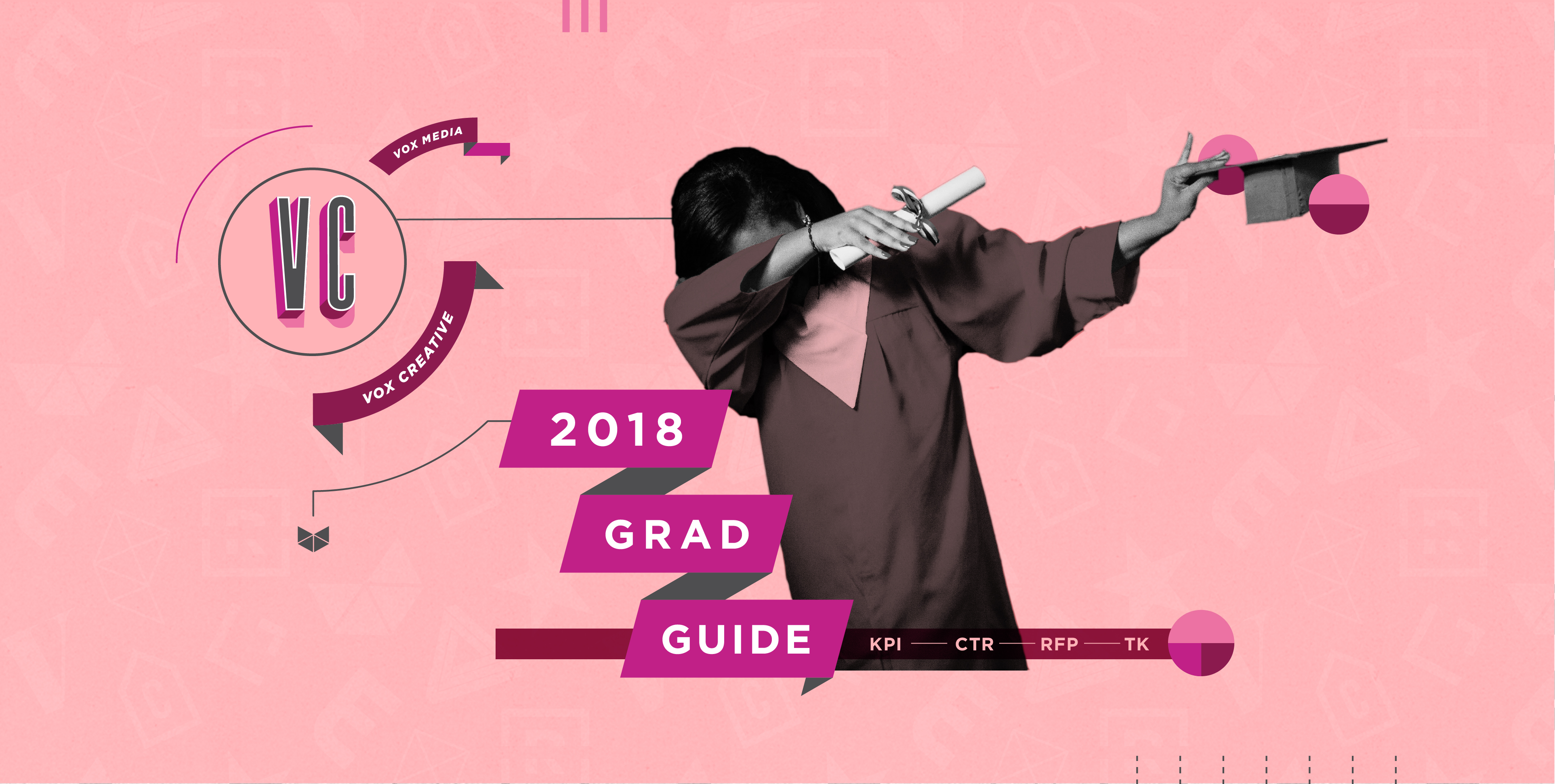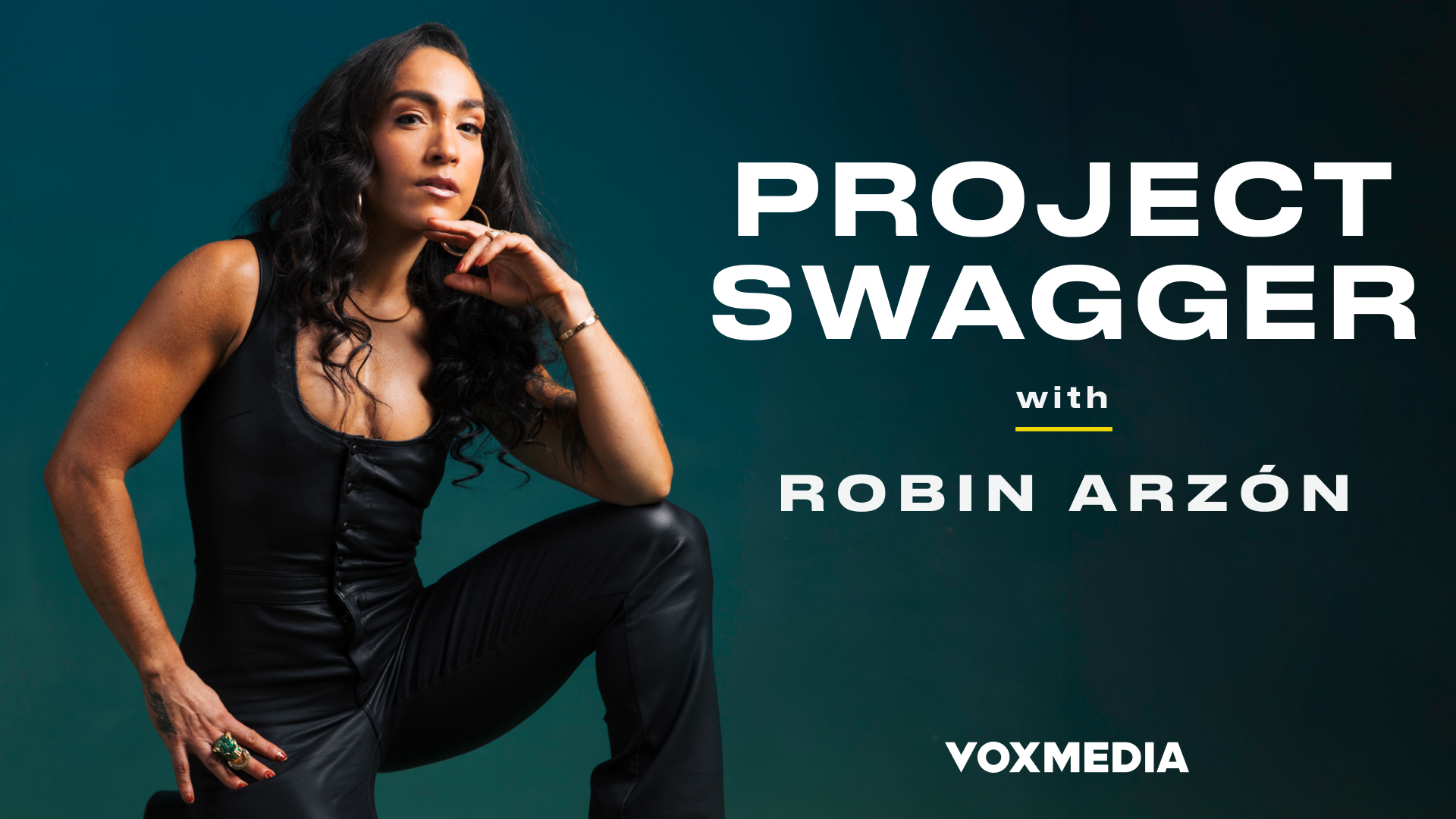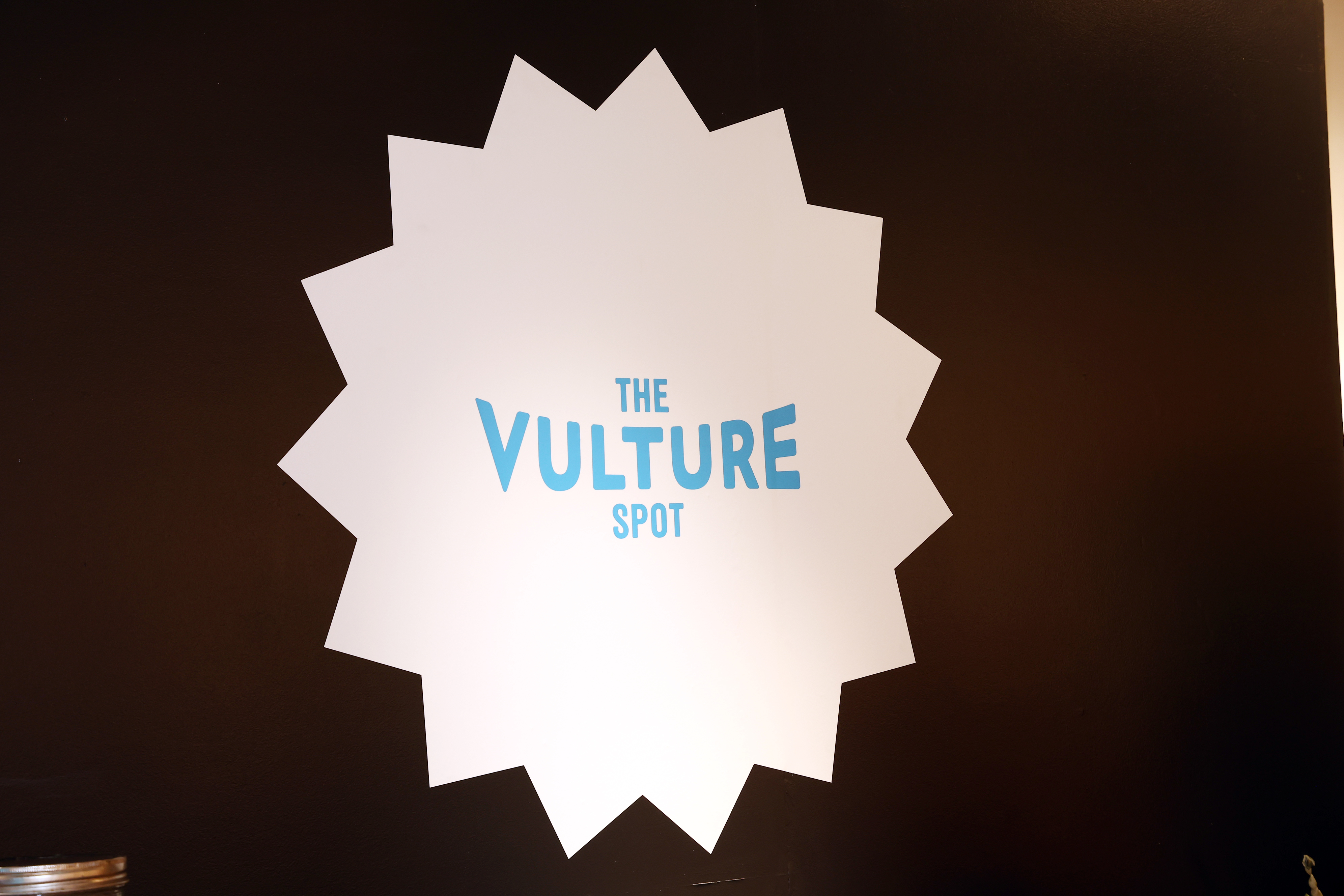This is part of a larger series called the Vox Creative Grad Guide.
RFP. KPI. CTR. More three-word acronyms floated in and out of the conference room phone’s speakers as I sweated and struggled to keep up in my notes. What would all of these acronyms and business jargon mean for me and my job? The only abbreviation I had come out of journalism school knowing was “TK,” a magazine and printing shorthand for “to come,” or words to be filled in at a later date, closer to publication. Now I was sitting on my first client kickoff call, an account director and RVP on either side of me, a team of producers infinitely more knowledgeable than myself, and my editor, who gave me an assuring nod. I’d get the hang of it, I hoped.
Starting at Vox Media on its native advertising team, Vox Creative, I felt as though “TK” could have described my career up to that point. I graduated from the University of Colorado’s journalism school in 2010 with a news-editorial major. It’s not lost on me that less than a year after I graduated, the Board of Regents moved to shut down the journalism school to rebrand and restructure the entire school. (The school has since been reaccredited.) It was a less than ideal time to enter the print industry, looking for entry-level work. So to pursue my dreams of moving to New York City and to affirm my skills as a journalist and editor — as my dad always told me, “You go to college to get an education, and grad school to gain a skill set” — I entered the S.I. Newhouse School of Public Communications for an expedited MA in magazine, print, and online journalism.
Surrounded by professors from New York’s glossiest publications, it was hard not to fall in love with newspapers, magazines, and the industry as a whole. Even sprinting through campus to report on a (faked) hostage situation gave me a renewed confidence in the career that I was pursuing. My team of students created a magazine concept that was prototyped for a final thesis project. (It was an iPad magazine app, if that gives you a guess as to how old I am now.)
I moved to New York City after graduating in 2011, and everything I thought I knew about the industry turned out to be drastically different from reality. Magazines went digital, social media grew exponentially, and publishers desperately sought the secret sauce for pageviews. My first employer — a food and drink digital website — relied heavily on SEO, paid traffic, and syndication to hit lofty goals that even then I knew to be inflated and unrealistic. Those early years in my career were a crash course in strategy, readership, and storytelling for new audiences.
Truth be told, I burned out from the editorial world quickly. Sourcing new and interesting stories became a grueling process, especially on a startup team with little support or resources. I freelanced after that first job to figure out what I wanted in my next career move, and after some trial and error, grew comfortable in content marketing. I worked in sponsored content for a small Brooklyn publisher, learned the ropes of interfacing with clients, and oversaw a content calendar that matched up with the advertisers’ wants and needs.
That led me to Vox Creative, the in-house agency for Vox Media. And the first few months were a rollercoaster. Instead of editorial brainstorms and check-ins with managing editors, I was sitting in on client calls and pre-production meetings for branded content. I had to relearn an editorial process in which agencies also acted as top editor on my stories. And I learned the ins and outs of digital advertising from liaising with different teams across the revenue organization — video production, ad operations, client management sales, and marketing, to name just a few.
The challenges of learning the ropes of branded content are better summed up by Melanie Deziel, a fellow Syracuse alumnae and consultant I’ve had the pleasure to work with, in her essay about the “three-month slump” of branded content. What I thought I knew about storytelling was turned on its head. What did it mean to be a storyteller for an advertiser? And what did it mean to the Vox Media audience, who can smell BS from a mile away? In large part due to our superior journalists, editors, and producers at Vox Media’s editorial brands, the Vox reader has come to expect only the best content and expects no less from its branded content.
Still, what excited me about branded content then is what excites me about it today. Every new campaign is a challenge, a puzzle to be solved, one that both fits the client KPIs and feels at home within the superior content network of our brands. I learned to flex my strategic muscles while editing for different platforms, audiences, and competing asks. Now I help lead creative work for clients across categories and help shape our team and company strategy in producing branded content for all eight Vox Media networks. The work has tested my skills as an editor and a creative storyteller, and has given me new insight into the side of the business I would have never seen before.
I’m often asked if I miss journalism or the editorial world, or if I would ever go back to the other side of publishing. There are days when I’m envious of my colleagues’ freedom in storytelling, and days when I miss speaking the language of editorial over revenue. But in my work in advertising, I feel deep gratification for the work of those who sit on the revenue side of publishing. Their sales enable the very talented journalists at Vox Media to produce their best work. Without topnotch strategists, sellers, and account management, their stories would echo into a chamber. I’ll never brag that a photo essay or a Facebook video is what’s keeping the lights on in our newsrooms, but every project added up has helped support the invaluable work of our editorial brands, and that is an achievement I’ll hang my hat on.
At a time when publishing and media has become increasingly discredited and maligned, it’s never been so important to support the work of journalism and find new sources of revenue. While I still respect journalists and their work, it ultimately wasn’t meant for me. Turns out, I liked making money for journalists more than I liked being a journalist.
by Marcy Franklin, 2010 graduate



